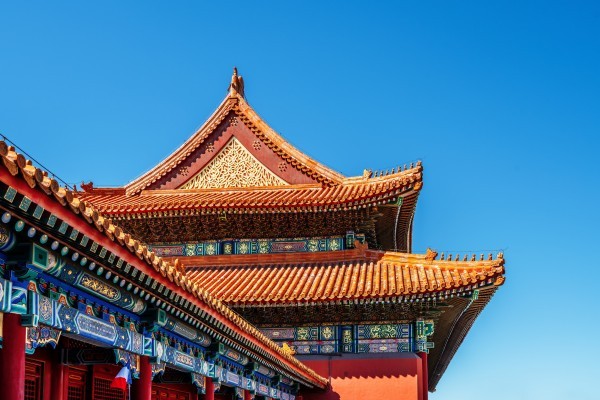Review №14 on Chinese Antitrust News from BRICS Antimonopoly Centre Experts
- China will step up support for the platform economy
- SAMR’s Center for Competition Policy and Big Data Budget
- Gan Lin: AML revision expected this year
- SAMR Legislative Action Plan 2022
- Methods for creating “model” Internet regulation
- CAC counters cyberbullying
- Campaign against unfair competition
- Netease Music accuses Tencent Music&Entertainment of unfair competition
- Chinese Foreign Ministry denies possible influence on Elon Musk
- Investment in Chinese Internet companies declined
China will step up support for the platform economy
On April 29th, the Politburo meeting of the CPC Central Committee chaired by Xi Jinping stressed the need to promote the healthy development of the platform economy, complete the process of eliminating platform violations, "normalize" regulation and take measures to support the regulated and healthy development of the sector. Such a statement has already provoked an increase in the shares of Chinese platforms. Many considered it a signal to move from aggressive pressure on Big Tech to support. The SCMP, citing unnamed sources, says that after the May holidays, authorities will meet with the country's largest digital venues to reassure them that there are no threats such as new compliance requirements or sudden fines.
Source: SCMP
SAMR’s Center for Competition Policy and Big Data Budget
The Center for Competition Policy and Big Data SAMR has published a list of expenses and receipts for 2022: the total budget of the organization will be 62 million yuan (≈$9.5 million). At the same time, the Center placed an application for public procurement of everything necessary for the implementation of the project on risk assessment and acute problems of online commerce in the amount of more than 4 million yuan (≈$600 thousand). The project involves the expansion of a "smart" system for online monitoring and regulation of online commerce, as well as the creation of models for risk analysis and prevention. In particular, a model of “choosing one of the two” will be created, i.e. coercion to exclusive cooperation, a common violation in China's platform economy. The centre will collect data on suppliers of goods and services on the largest platforms and, using big data technologies, analyze the level of the simultaneous presence of suppliers on different platforms. This will help identify platforms that are abusing their dominant position.
The centre opened on December 16th, 2021. Its function is to support the General Administration of Market Regulation of China in the areas of the antitrust, platform economy and big data.
Gan Lin: AML revision expected this year
Gan Lin, deputy head of SAMR, said that amendments to China's Antimonopoly Law are on the agenda of the legislature (NPC) and the updated law is likely to be published this year. She made such a statement at the presentation of the report "New Progress in the Protection of Intellectual Rights and the Development of the Business Environment in China in 2021". SAMR actively participated in the development of amendments to the Antimonopoly Law of the PRC, which has not been edited since its adoption in 2008. In addition to his position at SAMR, Gan Lin is the commissioner of the State Antimonopoly Bureau, which opened in November last year. Since then, the department has been actively involved in the fight against anti-competitive activities and increased regulatory capacity.
Source: SCIO
SAMR Legislative Action Plan 2022
The SAMR legislative agenda for 2022 includes 69 different projects, divided into two categories: projects that need to be submitted for discussion at the general meetings of the Office during the year, if possible, and projects without a fixed time frame, the preparation of which, however, needs to be actively promoted. The drafts of the first category will specifically affect the Law of the People's Republic of China on Unfair Competition, Regulations of the State Council on Criteria for Submitting Applications for Economic Concentration Deals, Regulations on Administrative Penalties for Price Violations, Interim Prohibitions on Anti-Competitive Agreements, Interim Provisions on Abuse of Dominant Market Position, Prohibitions on Misuse of Intellectual Property Rights to Eliminate or Restrict Competition, and Provisional Provisions on Dealing with Concentration Deals. Drafts in the second category will include the PRC Price Law and Trade Secret Protection Regulations.
Source: SAMR
Methods for creating “model” Internet regulation
To promote the healthy development of the platform economy, SAMR has published Pilot Methods for Establishing and Regulating Exemplary Regulatory Areas and Servicing Internet Markets, and related benchmarks. The document has been called the "conductor's baton" and "weather vane" for the creation of such exemplary zones: it establishes the tasks, rules and principles of their functioning - for example, dynamic management and the encouragement of innovation. Related indicators include qualitative and quantitative ones: qualitative measures whether the measures taken contribute to development, and quantitative ones - whether certain activities are carried out as a whole or whether the mechanism is complete.
Source: SAMR
CAC counters cyberbullying
Against the backdrop of frequent cases of bullying on the Internet, the Cyberspace Administration of China (CAC) demanded that 18 digital platforms (Sina, Douyin, Baidu, Zhihu, etc.) strengthen control over such incidents and eliminate violations. Platforms are required to “streamline” the entire chain of distribution of information content: create mechanisms for recognition and notification, implement a real-time protection system for victims of cyberbullying, prevent the expansion of access to incorrect information, increase the intensity of punishment of violators and direct the audience “on the right path”.
Source: Weixin
Campaign against unfair competition
As part of the thematic campaign, SAMR will focus on key sectors (new economy, important factors of production, etc.), key industries (early education, agency services, independent assessment, medical cosmetology, etc.), key populations (elderly, youth, women, etc.), key regions (rural areas, areas around health facilities and educational institutions, etc.) and key commodities (agricultural products, health products, etc.). The agency will vigorously detect violations such as fraud, counterfeiting, and coercion to exclusive cooperation, and fight them, creating a competitive environment that is favourable for entrepreneurs and consumers.
Source: SAMR
Netease Music accuses Tencent Music&Entertainment of unfair competition
The company published a statement on its WeChat page. Netease Music clarified that the lawsuit was filed based on violations of the Anti-Unfair Competition and Copyright Laws. “TME has been unfairly competing with our company for a long time, on a huge scale, in all sorts of ways and with serious consequences, and over the past two years the situation has only gotten worse.” In the post, Netease Music gives various examples of violations: illegal distribution of tracks, imitation of the interface, attracting traffic by fraud, etc. The company urged TME to stop the violations, train its employees and increase competition awareness.
Source: Weixin
Chinese Foreign Ministry denies possible influence on Elon
Musk
After Elon Musk's purchase of the social network Twitter, some speculate that China will take advantage of the fact that Tesla's production bases are located on its territory and will put pressure on Musk, thereby influencing Twitter policy (for example, the propaganda activities of Chinese state media are now blocked on the platform, including Xinhua News Agency). Foreign Ministry spokesman Wang Wenbin called the statement an unfounded assumption. When asked by a Reuters correspondent whether Chinese citizens would be allowed to use Twitter in China (now this social network is blocked) - “after all, Tesla conducts production and trading activities in China” - the representative of the Foreign Ministry also replied that the statement is speculation and is not based on facts.
Source: Baijiahao
Investment in Chinese Internet companies declined
According to the China Academy of Information and Communication Technology (CAICT) report, investment in Chinese Internet companies is declining: in the first quarter of 2022, the number of fundraising transactions decreased by 35.3% compared to the fourth quarter of 2021 and by 38.3% compared to with the same period last year. The declared volume of investments decreased even more: by 42.6% compared to the fourth quarter of 2021 and by 76.7% compared to the same period last year. At the same time, the number and volume of transactions to raise funds around the world increased by 6.5% and 4.7%, respectively, compared to last year.
Source: Baijiahao




